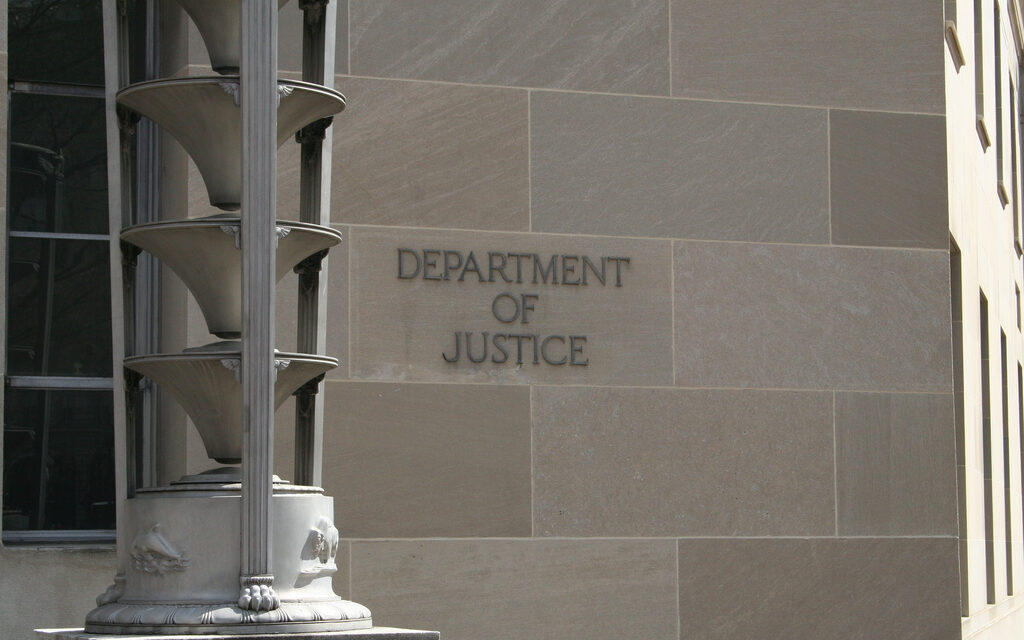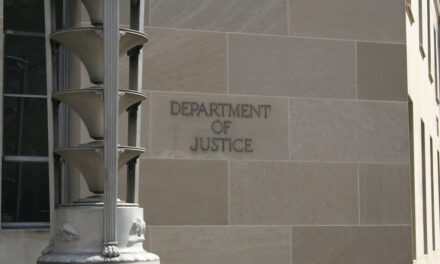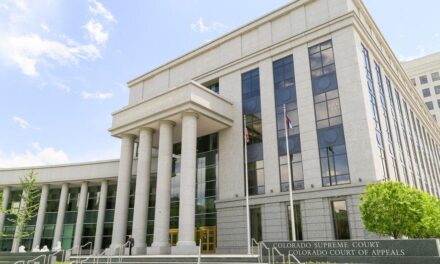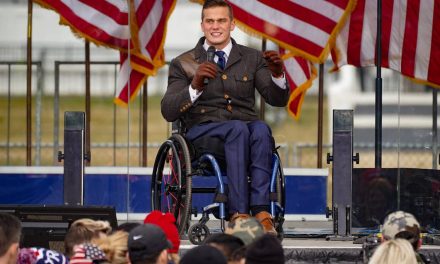Cross posted from The 10,000 Things
The Introduction:
Pizza parlor owner Mohammed Hossain and Imam Yassin Aref were arrested in a pre-dawn raid on their homes and an Albany, NY Mosque Aug. 5, 2004. The story splashed across national headlines then quickly disappeared. The men had been trapped in a FBI sting operation after being enticed into laundering money by an informant the FBI had used to infiltrate the mosque in trade for reducing his sentencing on unrelated charges.
Last Friday, Jan 20, 2006, Aref’s attorney Terence Kindlon filed motions in the US District Court for Northern New York to throw out the evidence against his client and dismiss all charges. Kindlon argues that all the evidence against his client is tainted by illegal and unconstitutional warrentless electronic surveillance authorized by the Bush Administration.
In the document Kindlon points to the New York Times story of December 17, 2005 where it was revealed that the NSA had been engaged in illegal domestic spying on the orders of President George Bush. On December 23, Kindlon wrote to the prosecutor, Assistant United States Attorney William C. Pericak, asking him to immediately “affirm or deny the occurrence of (any such) alleged unlawful act [as defined in 18 USC 2510]” pursuant to 18 USC 3504(a).” Pericak did not respond. The United States legal code mentioned here, 18 USC 2510 and 3504(a), is part of the code of law that “exclusively” governs electronic surveillance. More on that below.
On Jan. 5, 2006, Kindlon and Kevin Luibrand, attorney for co-defendant Mohammed Hossain, filed “The first formal challenge of a controversial national spying program…” when they “filed motions in U.S. District Court asking the government to disclose whether the pair [Aref and Hossain] were subjected to the domestic surveillance measures….”
Subsequently, on Jan 11, 2006, Kindlon again wrote prosecuting attorney Pericak, this time included a letter from Harvard Law Professor Laurence H. Tribe in which he describes his “inescapable conclusion” that the surveillance program is illegal. Kindlon’s letter asked Pericak to provide a summary of dates and times of any and all warrentless electronic surveillance along with a statement of any information gathered.
To date there has been no response from Mr. Pericak to either request.
On Jan. 17, 2006, another New York Times article printed a photograph of Yassin Aref 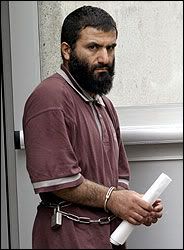 in a report on the failures of the NSA spying program. The article, and Kindlon’s motion, quotes General Michael V. Hayden, who was NSA director when the program began, as stating:
in a report on the failures of the NSA spying program. The article, and Kindlon’s motion, quotes General Michael V. Hayden, who was NSA director when the program began, as stating:
“I can say unequivocally that we have gotten information through this program that would not otherwise have been available.”
The article also stated, “Some of the officials said the eavesdropping program might have helped uncover people with ties to Al Qaeda in Albany, Portland, Ore.; and Minneapolis.”
Most significantly of all however, the motion cited these paragraphs from the article:
“By contrast [to cases where the NSA surveillance played only a minimal role], different officials agree that the N.S.A.’s domestic operations played a role in the arrest in Albany of an imam and another man who were taken into custody in August 2004 as part of an F.B.I. counterterrorism sting operation.
The men, Yassin Aref, 35, and Mohammed Hossain, 49, are awaiting trial on charges that they attempted to engineer the sale of missile launchers to an F.B.I. undercover informant.”
Just to clarify the misstatement by the New York Times in the previous sentence, Aref and Hossain are charged with money laundering in the sting operation. The FBI informant falsely stated to them that he was engineering the sale of a missile launcher and talked them into laundering the money on this purely fictitious sale.
Motion to Suppress Part A:
The NSA Warrentless Surveillance Program is Clearly Illegal and Unconstitutional
Congress enacted two statutes which together provide “the exclusive means by which electronic surveillance… and the interception of domestic wire, oral and electronic communications may be conducted.”
18 USC 2510, and the following one’s govern the use of electronic surveillance in criminal investigations and require prior judicial approval upon a showing of probable cause and that normal investigative procedures have failed or are reasonably expected to fail.
FISA, or 50 USC 1801 and following, governs electronic surveillance for “national security purposes.” FISA also requires prior judicial approval with noted exceptions of a 15 day grace period at the start of a declared war and a 72 hour emergency period that must be followed by governmental application for judicial approval.
“While the President claims the NSA program is legal, that claim is entirely specious, as shown by the plain language of the above mentioned statutes, the overwhelming consensus of legal scholars, two Congressional reports and case law.”
On January 6, 2006, Harvard Law School Professor Laurence H. Tribe wrote a letter in response to a request from Congressman John Conyers, Jr, ranking Democrat on the House Judiciary Committee. Tribe called the program, “as grave an abuse of executive authority as I can recall ever having studied.”
“[T]he [NSA surveillance] scheme in question, far from being authorized by Congress, flies in the face of an explicit congressional prohibition and is therefore unconstitutional without regard to the Fourth Amendment….
Tribe goes on to cite the Supreme Court case Youngstown Sheet & Tube Co. v. Sawyer, 343 US 579 (1952) (in which President Truman attempted a government takeover of a steel corporation), to show that such action “falls outside that tiny category of congressionally illimitable acts and is indeed unconstitutional unless affirmatively authorized by Congress.” In regard to Bush’s NSA program, he says it “not only falls outside that category but misses it by a mile.”
“The presidential power at issue in this case is therefore subject to the control of Congress. And that Congress has indeed forbidden this exercise of power is clear. The Foreign Intelligence Surveillance Act of 1978 unambiguously limits warrantless domestic electronic surveillance, even in a congressionally declared war, to the first 15 days of that war; criminalizes any such electronic surveillance not authorized by statute; and expressly establishes FISA and two chapters of the federal criminal code, governing wiretaps for intelligence purposes and for criminal investigations, respectively, as the ‘exclusive means by which electronic surveillance… and the interception of domestic wire, oral and electronic communications may be conducted.’
Kindlon’s filing goes on to quote Tribe taking apart the claim of Attorney General Gonzalez that the program was authorized, in particular his December 19 press briefing:
To argue that one couldn’t have gotten congressional authorization (in late 2001, when the NSA program was secretly launched) after arguing that, by the way, one did get congressional authorization (in late 2001, when the AUMF was enacted) takes some nerve….
The inescapable conclusion is that the AUMF did not implicitly authorize what the FISA expressly prohibited. It follows that the presidential program of surveillance at issue here is a violation of the separation of powers – as grave an abuse of executive authority as I can recall ever having studied.”
AUMF is the Authorization to use Military Force passed by Congress on Sep. 18, 2001.
Further, on Jan 8, 2006 another letter to Congress, this time by 14 different constitutional law scholars and former government officials, states that the Bush Administrations defense of the NSA program “fails to identify any plausible legal authority for such surveillance.” The letter concludes that it is “beyond dispute that, in such a democracy, the President cannot simply violate criminal laws behind closed doors because he deems them obsolete or impracticable.”
Kindlon then cites case law. In the case know as Keith (United States v. United States District Court, 407 US 297 – 1972):
“the Supreme Court pointed out that even in a time of widespread civil disorder, when the government claimed there were 1,562 domestic bombing incident in one six month period, warrentless domestic surveillance was unconstitutional and unacceptable in a free society.
Further, the Court stated:
Fourth Amendment protections become the more necessary when the targets of official surveillance may be those suspected of unorthodoxy in their political beliefs…
… The warrant clause of the Fourth Amendment is not dead language…
In Keith, the Supreme Court cited Coolidge v. New Hampshire, 403 US 443, 481:
… “It is not an inconvenience to be somehow “weighed” against the claims of police efficiency. It is, or should be, an important working part of our machinery of government, operating as a matter of course to check the “well-intentioned but mistakenly overzealous executive officers” who are part of any system of law enforcement.”
Further,
These Fourth Amendment freedoms cannot properly be guaranteed if domestic security [i.e. “Homeland Security”] surveillance may be conducted solely within the discretion of the Executive Branch….
… We recognize, as we have before, the constitutional basis of the President’s domestic security role, but we think it must be exercised in a manner compatible with the Fourth Amendment. In this case we hold this requires an appropriate prior warrant procedure.
Finally, Kindlon cites two different 1982 cases, “both involving IRA operatives who were charged with smuggling arms (including attempts to obtain SAMS) to the IRA….” (SAMS are surface to arm missiles similar to what the FBI operative said he was trying to sell) In the IRA cases quoted below we have real terrorists involved in real purchases of real military equipment unlike the Aref/Hossain case were we have an FBI sting setting up a false sale of military equipment to non-existent terrorists with no known terrorists or terrorist organizations or actual military equipment involved.
In United States v. Megahey et. al., 553 F. Supp. 1180, 1184, 1190 (EDNY 1982), the Eastern District of New York District Court upheld the constitutionality of FISA precisely because the Executive Branch was not given unlimited discretion over the surveillance.
“… The Senate report [on FISA] notes the infringement of and chilling effect on the constitutional rights of surveillance targets and those with whom the targets communicated caused by the previously unregulated nature of national security surveillance. Thus, FISA was ‘designed… to curb the practice by which the Executive Branch may conduct warrentless electronic surveillance on its own unilateral determination that national security justifies it’…
… [T]he FISA warrant is a warrant in the meaning of the fourth amendment, since it provides for the interposition of independent judicial magistrates between the executive and the subject of the surveillance which the warrant requirement was designed to assure….”
In the second case, United States v. Falvey, 540 F. Supp. 1306 (EDNY 1982) “the court, in an opinion which is especially pertinent given the facts of the instant case, and the illegal surveillance herein, stated:”
“The defendants mount a superficially attractive First Amendment attack on FISA. They argue that another problem with FISA is that it gives the government the opportunity to use politically-motivated surveillance of whatever group it chooses at a particular time. According to the argument, at this time the Polish labor union, Solidarity, is in; and the IRA is out….
Note that similarly, at one time bin Laden and the Muhjahideen were in and that bin Laden and Al Qaeda are now out; Saddam Hussein and Iraq were in against Iran but are now out.
“This argument, however, ignores two things. First, abusive political surveillance is precisely what Congress intended to control by providing that a judge – and not the Executive branch – make the finding that the target is truly the agent of a foreign power…. Second, because one man’s terrorism is another man’s holy war, FISA explicitly admonishes that ‘no United States person [which includes Yassin Aref, a permanent resident] may be considered… an agent of a foreign power solely on the basis of activities protected by the first amendment to the Constitution of the United States…’ 50 USC 1805(a)(3)(A).
Hence, to obtain a FISA surveillance order, the Government must provide the FISA judge with something more than the target’s sympathy for the goals of a particular group, in this case the IRA [which] … engages in international terrorism….
Moreover, requiring the FISA judge to find that the target is involved in these acts of international terrorism as part of its finding of probable cause to believe that the target is an agent of a foreign power, serves to limit the generality of the terms ‘agents of a foreign power’ and ‘international terrorism.'”
Consequently, Aref’s attorney’s state:
It is submitted that the government could not have legitimately obtained a FISA warrant for the surveillance of Yassin Aref because he was not ever “involved in” international terrorism.
The government engaged in illegal electronic surveillance of thousands of US persons, including Yassin Aref, then instigated a sting operation to attempt to entrap Mr. Aref into supporting a non-existent terrorist plot, then dared to claim that the illegal NSA operation was justified because it was the only way to catch Mr. Aref! That sequence of events is truly breathtaking as it shows the Administration’s arrogant dismissal of our Constitution and of everything that makes it worthwhile to be an American.
In part II I will write about part B. of the motion filed on behalf of Mr. Aref, All Evidence in this Case is the Fruit of the Illegal Electronic Surveillance and Must be Suppressed,” and the doctrine of the “fruit of the poisonous tree”, evidence obtained by illegal means.

